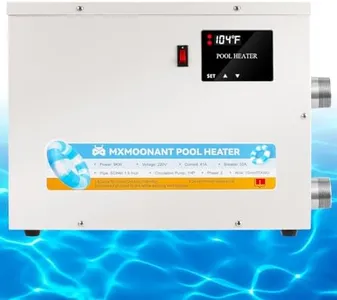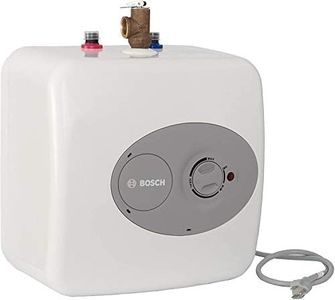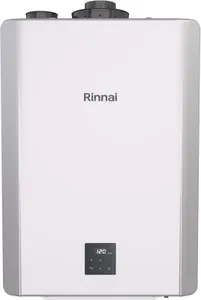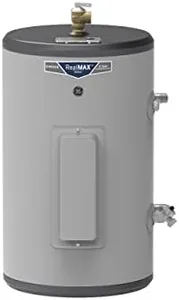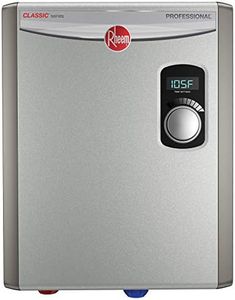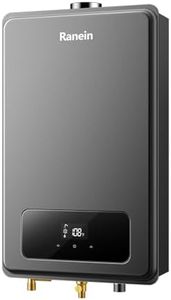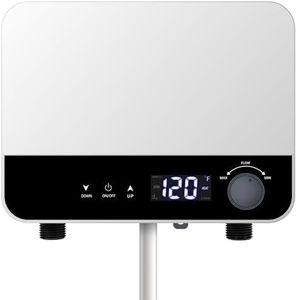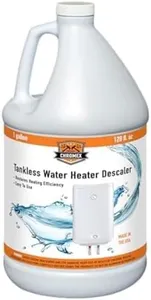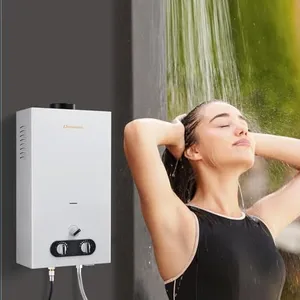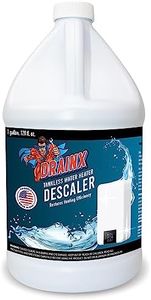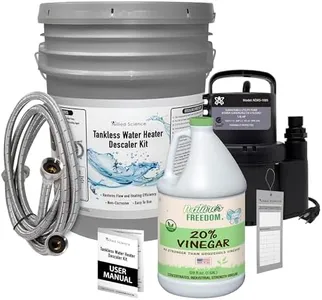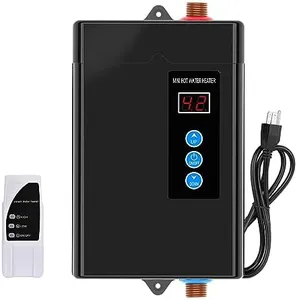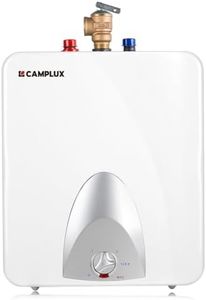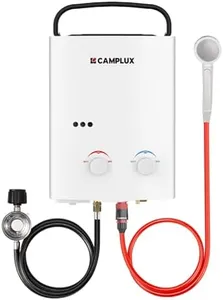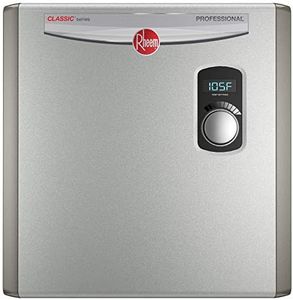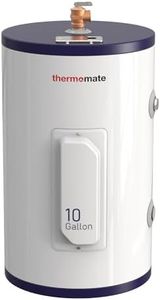We Use CookiesWe use cookies to enhance the security, performance,
functionality and for analytical and promotional activities. By continuing to browse this site you
are agreeing to our privacy policy
10 Best Hot Water Heaters 2025 in the United States
How do we rank products for you?
Our technology thoroughly searches through the online shopping world, reviewing hundreds of sites. We then process and analyze this information, updating in real-time to bring you the latest top-rated products. This way, you always get the best and most current options available.

Buying Guide for the Best Hot Water Heaters
Choosing the right hot water heater for your home is crucial for ensuring you have a reliable and efficient supply of hot water. There are several factors to consider, including the type of heater, its capacity, energy efficiency, and the fuel source. Understanding these key specifications will help you make an informed decision that meets your household's needs and preferences.Type of HeaterHot water heaters come in various types, including tankless, storage tank, heat pump, and solar water heaters. The type of heater you choose will affect your energy consumption, installation requirements, and overall efficiency. Tankless heaters provide hot water on demand and are more energy-efficient but may have higher upfront costs. Storage tank heaters are more traditional and have lower initial costs but can be less efficient. Heat pump water heaters use electricity to move heat from the air or ground to heat water, making them very efficient. Solar water heaters use energy from the sun and are environmentally friendly but depend on your location and weather conditions. Consider your household's hot water usage, space availability, and energy preferences when choosing the type.
CapacityThe capacity of a hot water heater refers to the amount of hot water it can supply at one time. This is typically measured in gallons for storage tank heaters or in gallons per minute (GPM) for tankless heaters. For storage tank heaters, a larger capacity means more hot water available at once, which is important for larger households or homes with high hot water demand. For tankless heaters, a higher GPM rating means the unit can supply more hot water simultaneously, which is crucial if you have multiple showers or appliances running at the same time. Assess your household's hot water usage patterns to determine the right capacity for your needs.
Energy EfficiencyEnergy efficiency is a measure of how effectively a hot water heater converts energy into hot water. More efficient models will use less energy to heat the same amount of water, leading to lower utility bills and a smaller environmental footprint. Look for the Energy Factor (EF) rating or the Uniform Energy Factor (UEF) rating, which indicate the efficiency of the heater. Higher ratings mean better efficiency. Consider choosing a model with a high efficiency rating if you want to save on energy costs and reduce your environmental impact.
Fuel SourceHot water heaters can be powered by various fuel sources, including electricity, natural gas, propane, and solar energy. The fuel source you choose will affect the heater's operating costs, efficiency, and installation requirements. Electric heaters are typically easier to install and maintain but may have higher operating costs. Natural gas and propane heaters are often more cost-effective to operate but require proper ventilation and gas lines. Solar water heaters are environmentally friendly and can significantly reduce energy costs but depend on your location and weather conditions. Consider the availability and cost of different fuel sources in your area when making your decision.
Recovery RateThe recovery rate of a hot water heater refers to how quickly it can reheat water after the initial supply has been depleted. This is particularly important for storage tank heaters, as a higher recovery rate means the heater can provide more hot water in a shorter amount of time. If your household has high hot water demand, such as multiple showers or appliances running simultaneously, a higher recovery rate will ensure you have a continuous supply of hot water. Evaluate your household's hot water usage to determine the appropriate recovery rate for your needs.
Installation and MaintenanceThe installation and maintenance requirements of a hot water heater can vary depending on the type and model. Some heaters, like tankless models, may require professional installation and regular maintenance to ensure optimal performance. Others, like electric storage tank heaters, may be easier to install and maintain. Consider the complexity and cost of installation and maintenance when choosing a hot water heater. If you prefer a low-maintenance option, look for models with self-cleaning features or those that require minimal upkeep.
Most Popular Categories Right Now
